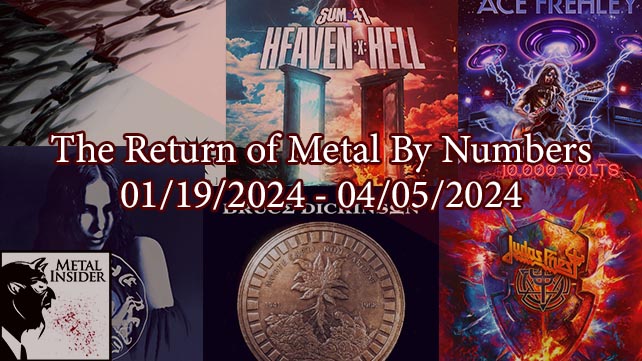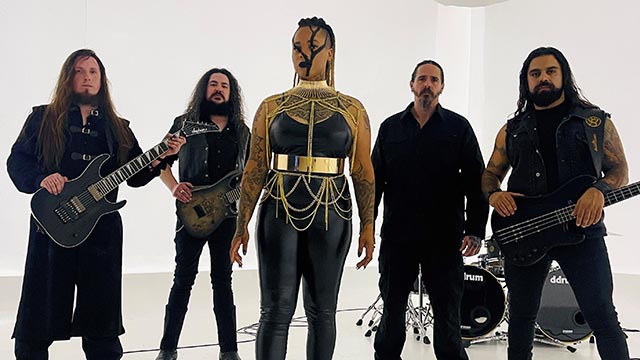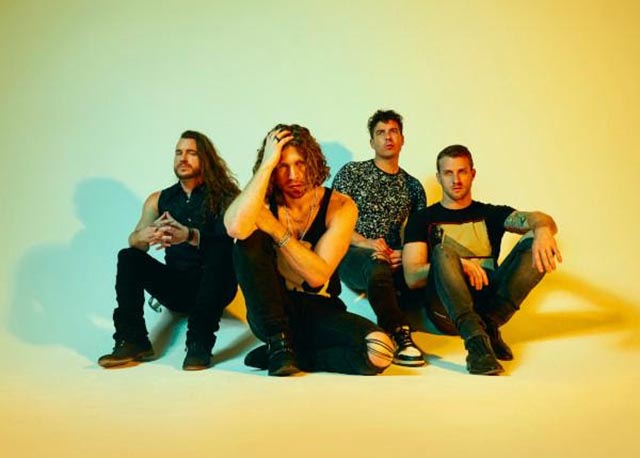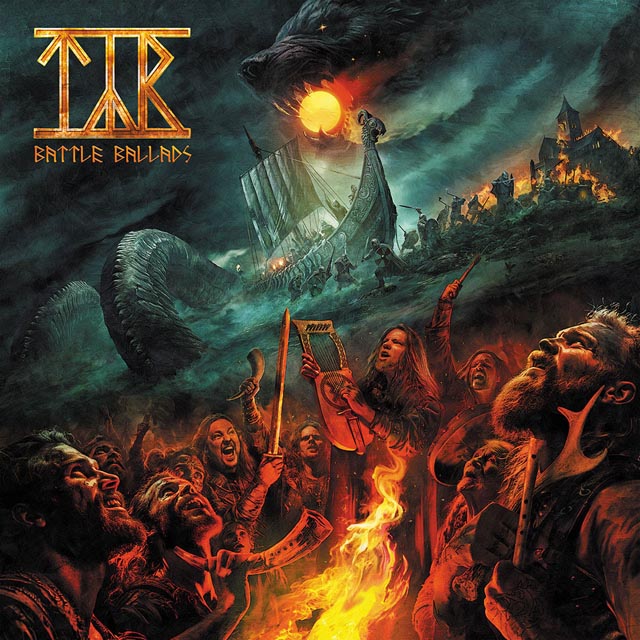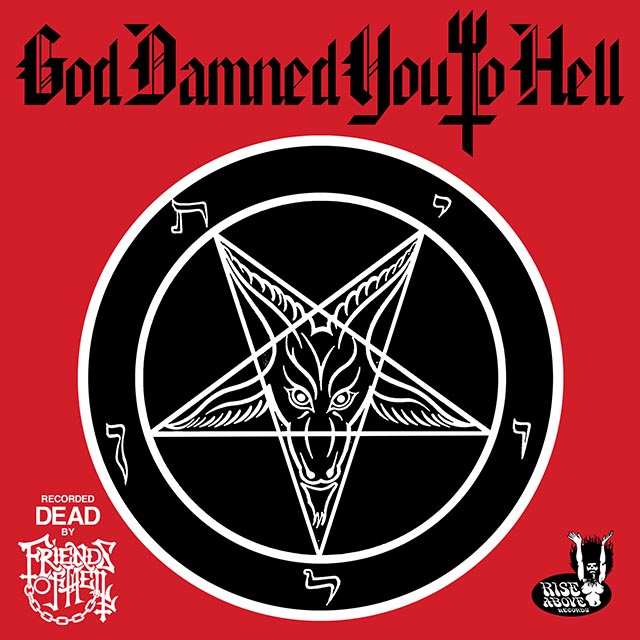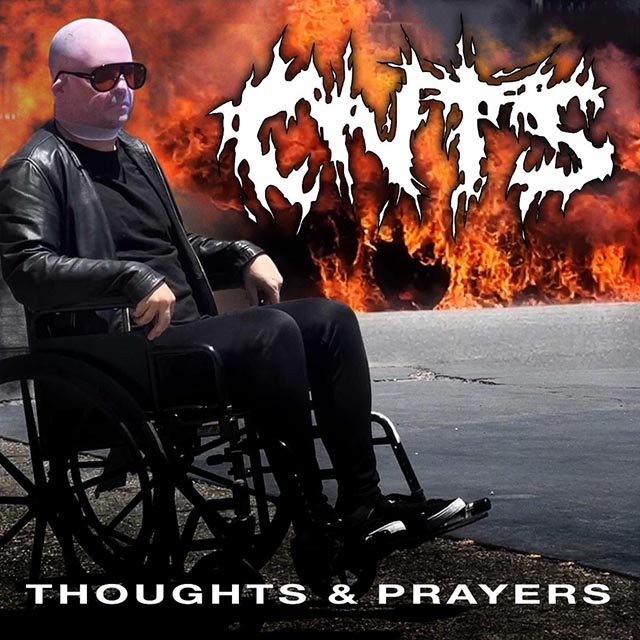 We at Metal Insider have had the pleasure of sitting down to chat with Delain vocalist Charlotte Wessels on a number of occasions, so it only seemed right to catch up with her again as Delain embarked on their first headlining tour of North America. We had a lot to catch up on, including Delain’s latest album Moonbathers, the growth within the band leading up to the release of Moonbathers, and the debut release from Wessels’ side project Phantasma. We also discussed politics, protest movements, and the role of music and artistic expression within those realms. Read on below, and be sure to catch Delain on the last few shows of this tour or on any of their summer festival dates!
We at Metal Insider have had the pleasure of sitting down to chat with Delain vocalist Charlotte Wessels on a number of occasions, so it only seemed right to catch up with her again as Delain embarked on their first headlining tour of North America. We had a lot to catch up on, including Delain’s latest album Moonbathers, the growth within the band leading up to the release of Moonbathers, and the debut release from Wessels’ side project Phantasma. We also discussed politics, protest movements, and the role of music and artistic expression within those realms. Read on below, and be sure to catch Delain on the last few shows of this tour or on any of their summer festival dates!
It’s been two years since the last time we got to talk to you. How is it to be back in the US so far?
It’s great! This is the first time we actually get to do a full headline set [in the US], and people are responding well to it. We’re enjoying ourselves.
You started off the tour at the prestigious New England Metal and Hardcore Festival. How was the reception there?
Very good! For us, it was also a nice reunion with a lot of the bands playing there that we’ve toured with in the last couple of years. It was a lot of fun!
Last year, you released your new album Moonbathers. Critical reception was great, with the album charting in eleven countries. How has fan reception been so far?
It’s been really good. We have nothing to complain about. Live, the songs work really well. With previous records, when we’d start performing the new album, we’d introduce two, three, four songs at a time. This time, we played almost the entire record at the first gigs that we played with it. We’re playing a mix of albums now, since it’s the first time that we can actually do the headline set here.
This was your first time recording an album as a six-piece group, with the addition of second guitarist Merel Bechtold. Did that change the dynamic at all in the studio?
To be honest, not so much. It always takes some time before new members find their way in the creative process. Merel had just joined when we were already deep into the album. I think it’s more of a matter of seeing what’s going to happen for the albums in the future.
This was also the first time recording with Ruben Israel on drums. Was it the same with him?
Yeah, but of course, everyone brings their identity to their parts in the way they perform it. I don’t want to undermine that. But for example, with Merel, she writes a lot for her other bands, but she hasn’t done that with us yet. I hope that she will for our next one.
One of the things you’ve mentioned after the album’s release was that a lot of the lyrics were about death, and that it wasn’t a conscious thing in the writing. Looking back on that, how has it been performing that somewhat darker material?
Well, writing it is always a bit of a process. Performing it, I always get into another kind of mode, and I can rather easily switch off the emotions that belong to the lyrics initially, or at least the parts that would affect the performance negatively.
Another thing that happened since we last spoke was the debut release of your side project, Phantasma. Can you tell us a little bit about that album, The Deviant Hearts?
I was invited to work on the concept, and that was rather interesting to me because I’d been playing with the idea of writing fiction, and this was a very nice platform to work on that. It was, especially creatively, very rewarding because a lot of my songs were on there, and my first baby novella was on there. I also got an opportunity to work with artists that I really like. It was a wonderful collaboration of Georg [Neuhauser] and Oliver [Philipps].
Do you have any plans to write any future fiction pieces that might turn into music of either Phantasma or Delain?
Yeah, I got very positive responses to it, and I really enjoyed the process itself. Not so much the deadline, though. [laughs] I’m hoping to explore the possibilities further, definitely.
We’ve talked in the past about how what you’re reading influences your writing. What are some things you’ve been reading lately that might influence future material?
I’m trying to get all of my Neil Gaiman books done. I’ve been trying to get through his entire collection. I’m very excited about American Gods premiering. I saw the billboards all over the city. Also, on our last album, in the nonfiction area, there was this book called The Better Angels of Our Nature, which was basically a history of violence in humankind. It sounds very depressing, but it’s actually rather uplifting, because it shows that we’re…well, the book was written a year ago, so recent developments haven’t been taken into account. But it shows we’re in a declining trend when it comes to the amount of violence. And that’s positive.
Going off of that, there’s been a lot of political and sociological activities like the March for Science and the March for Women that have been happening all over the world. What are some of your thoughts on those topics?
Of course, it’s very positive that the marches are there. It’s very good to hear that sound. I’m not too excited about the necessity of having them. There have been several in Holland where I wonder if I should join, but I always wonder what’s the best way to contribute. The marches are one, because it shows the multitude, the multitude of people who feel that way. But I also feel that a lot of people that have other platforms, especially artists, to use that platform to speak up about things. It’s a lot of rather complicated matters. I always have trouble finding the right tone to speak about things. To not just be another…there are so many people that are basically shouting their opinion into space. But I think the marches are a very good step in finding ways to transport a message, so to speak.
So those activities are happening in Europe as well.
Yeah, we’ve had the Women’s Marches as well. I think every country had their own march. A lot of them were organized on the same dates or within the week after.
What is the perception like regarding the need for those activities to take place?
It’s different for everybody. Some people are obviously very positive towards the marches. Other people just basically mock it or say that it’s not going to amount to anything. Like I said, though, you don’t read something through the marches themselves. It’s the way of showing the multitude of people who care. It’s kind of comforting, in a way.
Do you think these things will ever work their way into the lyrics and the music of Delain?
I always try to find a way to talk about these things. You can do the marches, you can stand up on a crate, but I feel that through music, it needs a different vocabulary. Like when we wanted to talk about discrimination, that was a topic I wanted to write about for a very long time. But I didn’t just want to be like, “Hey you, don’t discriminate, because that is bad!” You’ve got to find the story and the right examples that people will relate to and really feel. For me, at that point, that was Sophie’s story for We Are the Others. So when you ask me if I’ll write about this – I will write about it if I find the right vocabulary to speak about it in a way that’s not just, “Hey look at me, I have an opinion too.” But also, like I said earlier, I do feel that with any platform you have, there comes a certain responsibility to also speak up about certain things.
With that in mind, what’s in store for the next album from Delain?
Well, we are starting the writing process as soon as we get back. There were so many ideas going back and forth before we left, as well. We’re planning to take our time with this one. We Are the Others took a very long time to be released. With the two albums after that, we wanted to be as productive as possible, and now we’re kind of feeling like we want to take the time again to not only write the album, but also go back on it and do something unexpected or weird when it comes to a theme or a concept. We’re starting that pretty soon and we’re really excited about doing something unexpected. But at this point, even we don’t know what it’s going to be.
Maybe similar to the instances on The Human Contradiction and Moonbathers where you added growling vocals to the music, which previously wouldn’t have been expected from the band.
Yeah! Well, those were just us trying to experiment, but yeah, things like that.
I was present for your first full tour of the US with Kamelot in 2013. Four years later, Delain has grown to being a headlining band in the US. How has that change and evolution been received by the band?
We’re really proud of the fact that we made it happen rather quickly, and that we’ve been able to come back so many times and do this. It’s all very exciting. I must admit that for me, it’s a little bit stressful. We do loads and loads of touring, and for me, with the long-distance travel, sometimes it really affects the throat. But I love it, still. The most special thing about is, not only did we get to come back so many times, but new people are coming to the shows every time. We’ve done four dates so far, and they were all amazing. There were so many people there. I’m just really grateful, because it’s the people that buy the tickets that make it possible for us.
Any final thoughts you’d like to add?
Well, like I said before, to the people who come to the shows and listen to the music, you’re the ones that make it possible for us to do this. Thank you so much for that, and I hope we see everyone on the road!


